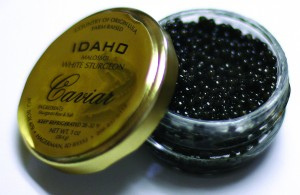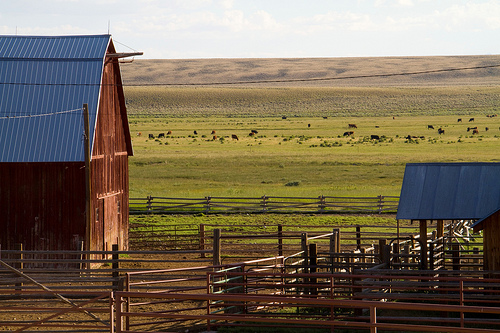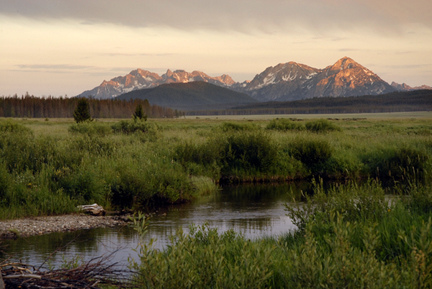Earlier this month, Deputy Agriculture Secretary Kathleen Merrigan announced almost 300 Value Added Producer Grant recipients across the Nation. Each one of those recipients has a story, and a dream that, with help from USDA, will become reality. From producing pumpkin puree and gourmet cheese to expanding a caviar production operation in Idaho (Yes, Idaho), Rural Americans are using these matching grants to grow their businesses and bring high quality products to market.

Using funding provided through the USDA Value Added Producer Grant program, an Idaho producer will expand sales of gourmet caviar. Photo by Ashley Smith, Times-News staff photographer, used with permission.
Read more »
The City of Murdo, South Dakota, is located at the crossroads of Interstate 90 and Highway 83 in the middle of the State. A town with a population of 500 in a county with one person per square mile; Murdo has several new businesses and recreational activities that keeps the town thriving.
An all-volunteer Murdo Development Corporation manages a local revolving loan fund started through a USDA Rural Development Rural Business and Enterprise Grant (RBEG). From creating jobs to helping to retain them at the local golf course to funding improvements to the local grocery store, Murdo Family Foods, the loan fund has assisted in the growth of the community. Read more »
We left the cool warehouse with sticky shoes and smelling of spoiled bananas, but also with a warm feeling for having helped the North Texas Food Bank in Dallas ensure healthy, fresh food for their clients. Hundreds of cases of bananas had been donated, but when food bank staff checked the produce it was too spoiled to be used. However, the sturdy produce boxes could be salvaged for further use, so 32 USDA volunteers from the Food and Nutrition Service Southwest Regional Office and USDA Risk Management Agency rolled up their sleeves to empty and then reassemble the boxes. This was a great opportunity for us to work together with other USDA employees and see the food bank in operation first hand. The project was part of the January 12th USDA National Day of Service honoring the life of Dr. Martin Luther King Jr.
Read more »
As America works towards an economy that’s built to last, we must make sure to provide American workers with the skills they need to compete.
If we want to build an economy that makes, creates and innovates; if we want to usher in a new era for American manufacturing and American-produced energy; our students and workers need a good education and strong training.
At USDA, one of our jobs is to help American workers learn the skills they need to be ready to take on the jobs of today and tomorrow. Read more »
A large, family-run ranch in Wyoming was recently placed in permanent conservation easement with the help of USDA’s Natural Resources Conservation Service (NRCS) and The Conservation Fund. The efforts of other partners were also key.

Barn: View of one of the homestead ranches now protected by two conservation easements. Photo by Mark Gocke.
The ranch, which is one of the oldest operating ranches held by one family in the Green River Valley, will be permanently protected under NRCS’ Farm and Ranch Lands Protection Program (FRPP). The 10,000-acre ranch is actually two homestead properties owned by the Budd-Espenscheid family, near the town of Big Piney, and will be protected under two easements. Read more »
When the first Europeans settled in what is now the United States, they found a continent of extensive wildlands. In less than 500 years, the undeveloped nature of these wildlands has been reduced significantly. As they became increasingly scarce and a fledgling conservation movement lost natural treasures like Yosemite’s Hetch Hetchy Valley to development, Americans began to appreciate their value.

View of the Sawtooth Range in Idaho. U.S. Forest Service photo.
With passage of the Wilderness Act of 1964, a new course in history was chartered — to preserve some of the country’s last remaining wild places and protect their natural processes and values from development. Read more »



